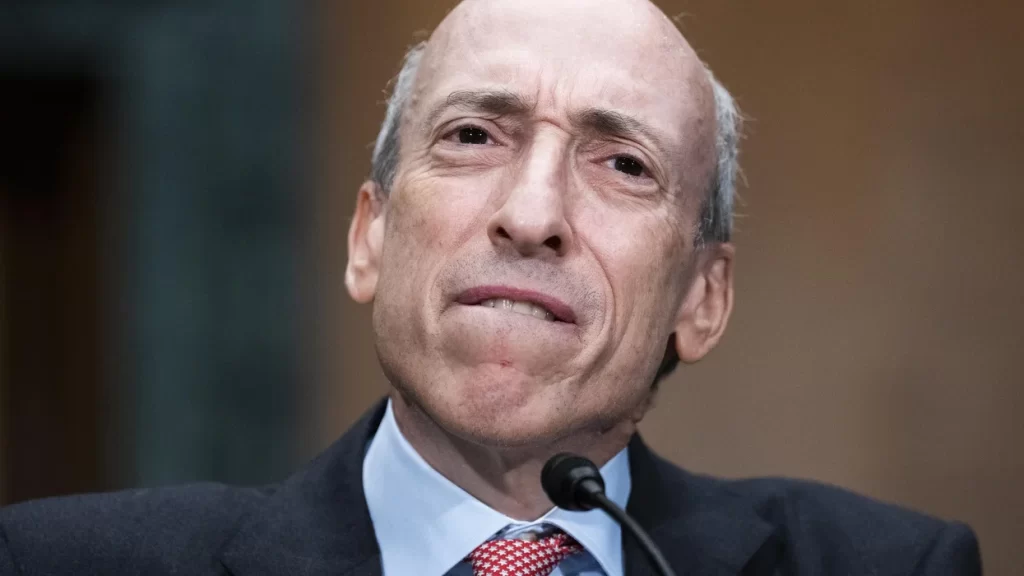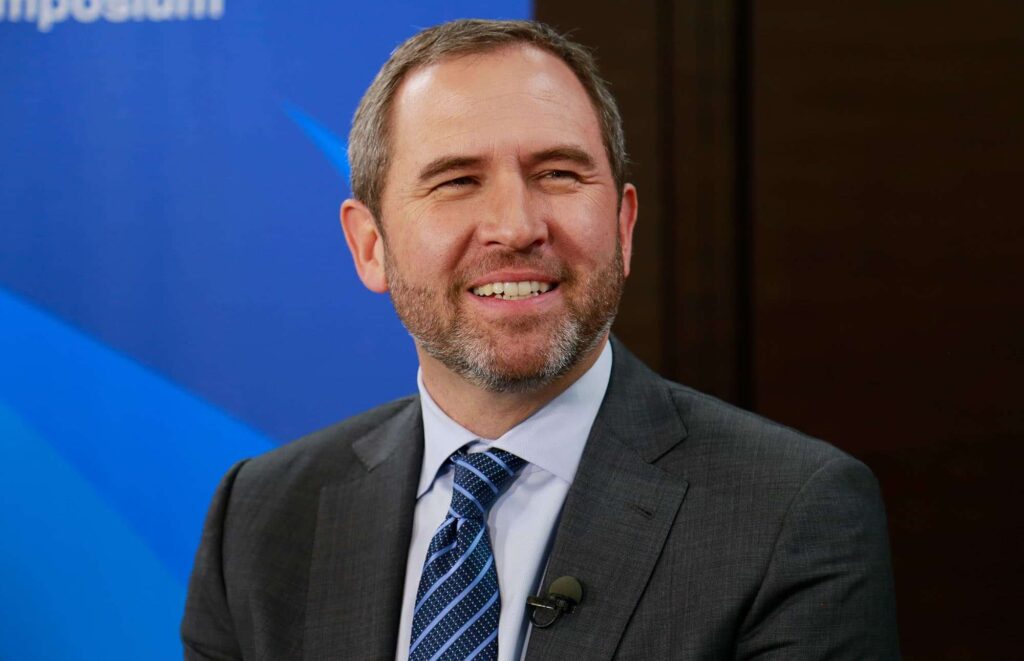During his speech at the Ethereum Community Conference (EthCC), Mudit Gupta, the chief information security officer of Polygon, shed light on the practical challenges associated with private or mnemonic keys despite their security advantages.
Gupta emphasized the disparity between theoretical and practical security within the blockchain and crypto space.
While the industry is rapidly progressing in terms of theoretical security, Gupta believes it lags significantly behind in practical security.
He specifically highlighted the difficulties of safeguarding private keys compared to passwords. Private keys, once leaked, cannot be changed, unlike passwords.
Gupta explained that the responsibility of keeping a mnemonic or private key safe poses a far more challenging problem.
The consequences of failing to secure mnemonic keys are significant, with billions of dollars already lost due to individuals misplacing or losing their keys.
Gupta stressed the urgency of addressing this issue, as countless users’ wallets contain billions of dollars that are improperly secured.
Gupta acknowledged that private keys are theoretically 100% secure, as long as they remain unknown to others.
READ MORE: Aave Launches GHO Stablecoin on Ethereum Mainnet
However, he recognized practical challenges that can arise, such as ensuring access to funds for loved ones in the event of the owner’s death or dealing with compromised keys.
Furthermore, Gupta discussed the inherent difficulties faced by defenders in the security realm. He pointed out that attackers have an easier time than defenders since they only need to exploit a single vulnerability.
Defenders, on the other hand, must cover every possible entry point, leaving no room for any oversight.
Despite these challenges, Gupta emphasized the importance of defending against cyber threats.
He acknowledged that security professionals have a tougher role compared to hackers and exploiters, as defenders must diligently cover all bases to ensure the integrity of systems.
In conclusion, Mudit Gupta highlighted the practical challenges surrounding private or mnemonic keys, even though they offer enhanced security.
He called for greater attention to securing mnemonic keys, considering the billions of dollars at risk due to improper security measures.
Additionally, Gupta emphasized the arduous task faced by defenders, who must safeguard every aspect of a system against attackers seeking vulnerabilities.
Other Stories:
Former SEC Official Criticizes Ripple Ruling as ‘Troublesome on Multiple Fronts’
Primed For Major BTC Rally? SEC Begins Review of BlackRock’s Bitcoin ETF Application
Binance Integrates Bitcoin Lightning Network for Lightning-Fast BTC Transactions
United States-based cryptocurrency mining company Marathon Digital is facing legal action as its shareholders accuse CEO Fred Thiel and other top executives of breaching fiduciary duties, enriching themselves unfairly, and misusing corporate assets.
On July 8, a shareholder complaint was filed against Fred Thiel and nine other Marathon executives in the United States District Court for the District of Nevada.
The lawsuit includes five claims, including violations of the U.S. Securities Exchange Act, breach of fiduciary duties, unjust enrichment, and misappropriation of corporate assets.
The plaintiffs are also seeking potential compensation from Thiel, Merrick Okamoto, Simeon Salzman, and Hugh Gallagher for their alleged wrongful acts leading to a complaint filed by the U.S. Securities and Exchange Commission (SEC) against the company.
The shareholders’ legal team did not specify a specific amount of compensation, leaving it to the court to decide.
Furthermore, the shareholders aim to rectify the company’s governance by enhancing the board’s oversight of operations, nominating at least four candidates from shareholders to the board, and eliminating the previous procedure for directors’ elections.
According to the legal team, the company’s management has downplayed its issues, artificially inflated Marathon’s valuation, received excessive compensation, engaged in lucrative insider sales, and obtained undeservedly high bonuses based on false and misleading statements.
READ: 3 Best Crypto PR Agencies – Fees, Results and Full Review
In May, Marathon received a subpoena from the SEC, which was related to transactions with related parties that took place during the construction of its facility in Montana.
In 2021, the regulator had previously requested the firm to provide documents and communications regarding the same mining facility.
Despite facing these challenges, Thiel expressed optimism in May when outlining the company’s strategy to reduce its net loss from $12.9 million ($0.12 per share) in Q1 2022 to $7.2 million ($0.05 per share) in 2023.
While the decline in the price of Bitcoin also impacted Marathon’s quarterly results, the mining firm managed to reduce its debt in March.
It paid off a term loan with Silvergate Bank, allowing the release of the 3,132 BTC held as collateral for the loan.
Marathon stated that this move would eliminate $50 million of debt and reduce its annual borrowing costs by $5 million.
Cryptocurrency lending firm Celsius, currently facing bankruptcy, has submitted a request to the court seeking relief regarding the distribution of funds obtained from the sale of its self-custody platform, GK8.
According to the filing made by Celsius Network’s debtors on July 17, an agreement has been reached among the Series B holders to allocate $25 million from the proceeds of GK8’s sale.
This settlement was agreed upon by the debtors, the creditors’ committee, and the initial consenting Series B preferred holders.
The document outlines that $24 million will be designated for legal expenses, while the remaining $1 million will be distributed among the holders.
The debtors have shown support for this proposed allocation, emphasizing that the primary objective of the settlement is to reduce administrative costs.
The filing states that the proposed allocation provides reciprocal benefits to the initial consenting Series B holders.
The settlement agreement was primarily based on the mutual desire to avoid expensive litigation and a lengthy confirmation process, which would entail additional professional fees.
READ MORE: Web3 Needs Asset Protection, and This Startup Wants to Make it Widely Available
The document highlights the benefits of the settlement, stating that it not only unlocks substantial value for the creditors but also provides clarity and certainty for all parties involved.
Consequently, the filing requests the court to overrule any objections and grant the relief sought in the motion.
Celsius had acquired the Israeli self-custody startup GK8 in late 2021 for $115 million but was compelled to sell it as part of the restructuring plan following the company’s collapse in 2022.
The investment firm Galaxy Digital, led by Mike Novogratz, emerged as the winner of the bidding process to purchase GK8 in late 2022.
As part of the acquisition, Galaxy obtained GK8’s team of 40 experts and their Tel Aviv office. In July 2023, GK8 held a meeting with financial executives at its New York offices.
These recent developments come at a time when Celsius is grappling with various legal challenges.
On July 13, the United States Securities and Exchange Commission filed a lawsuit against Celsius, coinciding with reports of the former CEO Alex Mashinsky’s arrest.
Additionally, the U.S. Federal Trade Commission imposed a $4.7 billion fine on Celsius on the same day.
Mashinsky, after pleading not guilty to charges of misleading customers and inflating the Celsius CEL token, was released on bail of $40 million.
Other Stories:
Bitcoin On-Chain Data Reveals $30,000 as Most Popular ‘Buy’ Level
3 Best Crypto PR Agencies – Fees, Results and Full Review
Ex-Federal Prosecutor Surprised by Potential SEC Appeal in Ripple Case
Data suggests that the price of Bitcoin is likely to drop below $29,000 in the near future.
The inability to break above $31,800 on July 13 led to a 6.3% correction, bringing the price down to $29,700 on July 17.
Investors are concerned that ongoing regulatory developments and macroeconomic challenges could push Bitcoin below the $29,000 level, last seen on June 21.
Bitcoin futures indicate increased demand, but Asian markets are slowing down. Typically, Bitcoin futures trade at a slight premium compared to spot markets, indicating sellers’ willingness to delay settlement for more money.
Healthy markets usually exhibit BTC futures contracts trading at a 5% to 10% annualized premium.
Between July 14 and July 17, BTC futures maintained a 7% premium, surpassing the 5% threshold, suggesting moderate conviction among bulls after the unsuccessful attempt to break above $31,800.
However, the premium of Tether (USDT) in Asia has been decreasing. The stablecoin premium serves as an indicator of demand from China-based retail crypto traders, measuring the difference between peer-to-peer trades and the U.S. dollar.
The recent Tether premium in Asia reached a discount of 1.8%, its lowest point in over six months.
This widening discount trend, starting on July 12, indicates moderate sell pressure.
Regulatory concerns continue to affect the crypto sector.
READ MORE: Ex-Federal Prosecutor Surprised by Potential SEC Appeal in Ripple Case
While the July 13 ruling that the sale of XRP via exchanges and over-the-counter desks did not violate securities regulations boosted markets, it did not definitively determine whether XRP’s initial coin offering was classified as a security offering.
This lack of clarity unsettles some investors, raising the possibility of other cryptocurrencies facing similar designations.
Additionally, Binance’s layoff of 1,000 employees and the departure of key executives, along with ongoing court actions from the Securities and Exchange Commission, have raised concerns about the future of the exchange.
Macroeconomic trends also pose challenges for Bitcoin and risk-on assets. China’s second-quarter gross domestic product growth fell short of expectations due to factors like the trade war with the United States and the government’s efforts to address debt.
These external factors, along with impending court decisions that could negatively impact major exchanges, increase the likelihood of Bitcoin dropping below $29,000.
In terms of trading, BTC futures indicate higher confidence among professional traders using leverage. However, sell pressure from retail investors in Asia limits the overall upside potential for cryptocurrencies.
Without a specific catalyst to drive it higher, Bitcoin’s price is susceptible to worsening macroeconomic conditions and indications of interest rate increases by the Federal Reserve in 2023.
Other Stories:
Best crypto marketing agencies to promote your project in 2023
3 Best Crypto PR Agencies – Fees, Results and Full Review
Web3 Needs Asset Protection, and This Startup Wants to Make it Widely Available
Meta and Microsoft have joined forces to introduce Llama 2, an open-source large language model developed by Meta that will be integrated into Microsoft’s Windows operating system and Azure cloud computing platform.
The collaboration between the two tech giants was officially announced on July 18. Llama 2, designed specifically for business and research purposes on Meta’s AI technology stack, is now available for free use in both academic and commercial settings.
Additionally, the model has been optimized to run seamlessly on Windows.
Meta claims that Llama 2 has been trained using a significantly larger dataset, incorporating 40% more publicly available online sources compared to its predecessor, Llama 1.
This enhancement allows Llama 2 to process twice as much context, boosting its performance in coding, proficiency, reasoning, and knowledge tests.
However, the company acknowledges that Llama 2 falls slightly behind closed-source competitors like OpenAI’s GPT-4 in terms of efficiency, as highlighted in one of Meta’s research papers.
READ MORE: FSB Proposes Global Regulatory Framework for Cryptocurrencies
Expressing his enthusiasm, Meta CEO Mark Zuckerberg took to Instagram on July 18 to emphasize the benefits of Llama 2, stating that it provides researchers and businesses with a cutting-edge language model as the foundation for their work.
Meta has been pleasantly surprised by the overwhelming demand for Llama 1 since its limited release in February.
Despite only offering limited access, the company received over 100,000 requests. Unfortunately, Llama 1 was later leaked online by a user on the imageboard website 4chan.
In contrast, ChatGPT, another popular language model, enjoyed tremendous success, attracting an estimated 100 million or more users within the first three months, as reported by Reuters in February.
With this partnership, Microsoft has now established itself as a supporter of two major players in the AI domain. In 2023 alone, the company invested a total of $13 million in OpenAI, according to a Fortune report published in January.
Meta’s decision to open source Llama received criticism from two US senators in June.
The senators raised concerns about the potential vulnerabilities in the initial version of Llama, suggesting that it could be exploited by malicious actors for criminal purposes.
Overall, the collaboration between Meta and Microsoft aims to advance the capabilities of large language models, providing researchers and businesses with powerful tools while addressing any potential risks associated with their deployment.
Other Stories:
PEPE Coin in Trouble? Financial Regulator Clamps Down On Crypto Memes
SEC Chair Gary Gensler Advocates Greater Use of Artificial Intelligence for Market Surveillance
Celo Blockchain Plans Transition to Ethereum Layer-2 Solution
New York Representative Ritchie Torres has urged Gary Gensler, Chair of the United States Securities and Exchange Commission (SEC), to reconsider the regulator’s stance on cryptocurrencies following a recent court ruling.
In a letter dated July 18, Torres requested that the SEC focus its enforcement efforts on “bonafide bad actors” instead of treating the majority of crypto assets as securities without discrimination.
The lawmaker’s appeal comes in light of a court ruling in the SEC’s case against Ripple, which indicated that the XRP token is largely not a security.
Torres criticized the lack of clarity and guidance provided by the SEC under Chair Gensler’s leadership.
He pointed out that the commission has not issued any rules on crypto assets and has been inconsistent in its messages, often contradicting both the Commodities Futures Trading Commission (CFTC) and itself.
Torres echoed the sentiments of other experts who believe that a swift appeal against the court decision is unlikely.
This ruling could also jeopardize the SEC’s case against Coinbase, which the commission filed in June for allegedly offering unregistered securities.
The lawmaker emphasized the need for the SEC to reconsider its regulatory approach to the crypto industry, describing it as a “reckless regulatory assault.”
He called for a reassessment of the commission’s actions, highlighting the urgency of establishing clear regulations for the sector.
READ MORE: SEC Chair Gary Gensler Advocates Greater Use of Artificial Intelligence for Market Surveillance
It is worth noting that Representative Torres coincidentally shares a surname with the judge presiding over the SEC v. Ripple case, Judge Analisa Torres.
He referred to the court ruling as the “Torres Doctrine,” likely in reference to the judge rather than himself, as he expressed confidence in the judge’s decision-making. Representative Torres is a member of the Congressional Blockchain Caucus.
The response from the SEC to the court ruling remains uncertain. Chair Gensler expressed disappointment on July 17 regarding the potential impact on retail investors, and the commission is still deliberating on the actions it may take in response.
The development raises questions about the future regulatory landscape for cryptocurrencies in the United States and the SEC’s approach under Chair Gensler’s leadership.
Other Stories:
Celo Blockchain Plans Transition to Ethereum Layer-2 Solution
PEPE Coin in Trouble? Financial Regulator Clamps Down On Crypto Memes
FSB Proposes Global Regulatory Framework for Cryptocurrencies
The cryptocurrency industry has experienced significant growth in terms of employment despite notable instances of cryptocurrency failures.
Research conducted by K33, a crypto research startup, reveals a substantial surge of nearly 160% in the number of individuals working in crypto-related positions since 2019.
In their report titled “The Emerging Crypto Industry,” K33 estimates that the total headcount of crypto professionals reached nearly 190,000 individuals in 2023, compared to approximately 73,000 in 2019.
The industry experienced its peak in terms of staff numbers in 2021, surpassing 211,000 professionals. This growth coincided with Bitcoin’s impressive performance, reaching an all-time high price of $68,000 in November 2021.
While the number of crypto employees has seen a reduction of approximately 11% since 2021, it remains significantly higher than four years ago.
This increase appears to align with the fluctuation of Bitcoin’s price, which surged over 300% from its average annual price of around $7,200 in 2019.
The findings of K33 are supported by data from various major industry players.
READ MORE: 3 Best Crypto PR Agencies – Fees, Results and Full Review
For instance, Kraken, a prominent cryptocurrency exchange, has witnessed a 150% rise in staff numbers since 2019, according to Pranesh Anthapur, the firm’s chief people officer.
Similarly, Trezor, a major hardware wallet company, has increased its headcount by 120% since 2019, as reported by CEO Matej Zak.
These companies prioritize long-term talent retention and development, even during bear markets.
Kraken’s Anthapur highlights the significance of securing the right talent to navigate the challenges of disrupting traditional finance.
Trezor’s Zak emphasizes their focus on building and retaining talent over cyclical hiring and firing based on short-term market trends.
Despite the overall growth in employment, the cryptocurrency industry has also witnessed layoffs at various firms, including Coinbase, Binance, Crypto.com, Dapper Labs, and Kraken.
Binance, in particular, reportedly laid off more than 1,000 employees recently, following a 20% reduction in staff announced in May.
Interestingly, while some major firms have engaged in significant layoffs, other crypto giants have maintained relatively small workforces.
Tether, the issuer of the world’s largest stablecoin, employs only around 60 individuals, according to a company spokesperson.
They emphasize a cautious approach to hiring, prioritizing employee well-being and future prospects, and demonstrating a track record of not downsizing staff even during previous downturns in the crypto market.
Overall, despite the challenges and setbacks faced by the cryptocurrency industry, the number of people employed in crypto-related roles has experienced substantial growth, indicating the continued interest and potential of the industry.
Other Stories:
Web3 Needs Asset Protection, and This Startup Wants to Make it Widely Available
Bitcoin On-Chain Data Reveals $30,000 as Most Popular ‘Buy’ Level
Ex-Federal Prosecutor Surprised by Potential SEC Appeal in Ripple Case
The Financial Stability Board (FSB), an international organization responsible for overseeing the global financial system, has developed a comprehensive global regulatory framework for cryptocurrencies.
The guidelines have been presented to the G20, which represents the 20 leading economies worldwide. The framework is built on the principle of “same activity, same risk, same regulation.”
On July 17, the FSB released a public note and two separate guideline documents.
These documents comprise high-level recommendations for regulating cryptocurrencies in general, as well as revised recommendations specifically focused on “global stablecoins.”
The latter refers to stablecoins that have the potential for cross-jurisdictional usage.
The FSB emphasizes the importance of segregating clients’ digital assets from the funds of crypto platforms and maintaining clear functional separation to avoid conflicts of interest.
Cross-border cooperation and oversight by regulators are essential in ensuring the effectiveness of these measures.
While acknowledging the value of privacy, the FSB urges local regulators to ensure that activities related to decentralized finance (DeFi) protocols do not hinder the identification of responsible entities or affiliated entities.
READ MORE: Former SEC Official Criticizes Ripple Ruling as ‘Troublesome on Multiple Fronts’
The recommendations state that authorities should have access to necessary data to fulfill their regulatory and supervisory mandates.
Regarding global stablecoins, the FSB highlights the need for stablecoin issuers to establish a “governance body” consisting of identifiable and responsible legal entities or individuals.
Issuers are expected to hold reserve assets in a minimum proportion of 1:1 unless they are subject to prudential requirements equivalent to those imposed on commercial banks.
One notable addition to the guidelines is the potential requirement for global stablecoin issuers to obtain permits to operate in each jurisdiction.
The FSB states that GSC arrangements should not be permitted within a jurisdiction unless they meet all regulatory, supervisory, and oversight requirements, including obtaining affirmative approval.
The FSB plans to assess the worldwide implementation of its recommendations by the end of 2025.
In September 2023, in collaboration with the International Monetary Fund, it will submit a joint report on existing policies and regulatory issues to the G20.
In alignment with the FSB’s stance, the Association for Financial Markets in Europe recently urged European Union lawmakers to incorporate decentralized finance (DeFi) into the first EU-wide crypto framework, referencing the FSB’s position on the matter.
Other Stories:
Aave Launches GHO Stablecoin on Ethereum Mainnet
Primed For Major BTC Rally? SEC Begins Review of BlackRock’s Bitcoin ETF Application
Binance Integrates Bitcoin Lightning Network for Lightning-Fast BTC Transactions
In a LinkedIn analysis, former Securities and Exchange Commission (SEC) official John Reed Stark criticized the recent ruling on Ripple Lab’s case, describing it as “troublesome on multiple fronts.”
Stark dissected Judge Analisa Torres’ decision from July 13, which favored Ripple in a lawsuit brought by the SEC in 2020. The SEC alleged that Ripple’s XRP token, valued at $0.74, was a security.
Judge Torres concluded that the XRP token was a security when sold to institutional investors but not in “programmatic sales” and other types of sales, such as token distribution to employees.
Ripple also faces penalties and potential rescission for institutional investors, involving sales of approximately $720 million.
According to the ruling, institutional investors had a reasonable expectation that Ripple would utilize the capital from sales to enhance the XRP ecosystem and increase the token’s price.
READ MORE: Eeon Intervenes in SEC Lawsuit Against Binance, Seeks Representation for Customers
In contrast, investors purchasing XRP tokens through exchanges could not reasonably expect the same outcome.
Stark raised concerns about the decision, claiming it established a discriminatory “class of quasi-securities” based on the investor’s sophistication.
He expressed disbelief that the same token could be considered a security in some instances but not in others, and that retail investors with less knowledge would receive less protection.
Stark highlighted the contradiction between the decision and investor protection principles, arguing that investors’ level of protection should not depend on their familiarity with the materials related to the asset purchase.
He noted that securities laws were designed to safeguard individual investors who may not have the ability to fend for themselves, but the Ripple decision appeared to contradict this principle.
Given his extensive experience as an attorney in the SEC’s Enforcement Division, Stark believed the decision was on shaky ground and likely to be appealed and overturned.
He predicted that the SEC would appeal to the 2nd Circuit, and the District Court’s rulings on “programmatic” and “other sales” would be overturned.
While Judge Torres’ ruling was viewed as a victory by the crypto community and Ripple, CEO Brad Garlinghouse anticipated a prolonged process before the SEC could appeal.
Garlinghouse also regarded the institutional sale decision as the least significant aspect of the lawsuit, suggesting that an appeal against the retail sale ruling would only strengthen Torres’ decision.
Overall, the Ripple case has sparked controversy and raised important questions about the classification of cryptocurrencies and the extent of investor protection under securities laws.
The final outcome remains uncertain as the legal battle continues.
Other Stories:
Synthetix Expands DeFi Offering with Introduction of Infinex Derivatives Exchange
ARK Invest Sells More Coinbase Shares, Expands Investments in Meta Platforms and Robinhood
Investor Spends $1.04 Million on PEPE Coin as Ripple CEO Criticizes SEC in Landmark Case
Significant investment activity has been observed in the PEPE coin market, as reported by data analytics firm Lookonchain.
Between June 14 and July 11, a total of 536 Ethereum, equivalent to approximately $1.04 million, was spent on purchasing a staggering 613 billion PEPE coins.
The investor, known as “osf_rekt,” made the latest purchase of 173 billion PEPE coins just 16 hours ago, spending 141 Ethereum, which amounts to roughly $265,000.
PEPE coin, a meme-themed cryptocurrency that debuted in April, has been creating significant waves in the crypto market since its launch.
Within just a month, it reached a market capitalization of billions of dollars, showcasing its rapid growth and popularity.
Currently ranked 72nd in the global cryptocurrency market according to CoinGecko, PEPE coin is trading at $0.00000154 with a market capitalization of $646 million.
READ MORE: Coinbase Temporarily Suspends Staking Services
The 24-hour trading volume stands at a robust $73,568,386, indicating a high level of investor interest in this meme coin.
Despite the inherent volatility and unpredictability associated with meme coins and the crypto market in general, the PEPE coin continues to attract substantial investments.
Its impressive rise in value and significant market capitalization demonstrate the confidence investors have in its potential for returns.
The CEO of Ripple, Brad Garlinghouse, recently referred to the SEC as a “bully” following a landmark court decision in favor of XRP.
Garlinghouse expressed joy over the outcome, highlighting that it marked the first time the SEC lost a crypto case.
The SEC has been actively involved in crypto-related enforcement cases, leading to concerns within the crypto sector about the agency’s authority and its impact on the industry.
The Ripple case is particularly significant, as it challenges the SEC’s classification of XRP as a security.
The recent court ruling has been seen as a blow to the SEC, and it has prompted discussions about the agency’s reach and the need for clarity in regulations surrounding digital assets.
In conclusion, the PEPE coin market has witnessed substantial investment activity, with billions of coins being purchased over a month.
The cryptocurrency’s market capitalization and trading volume demonstrate its popularity among investors.
Meanwhile, the Ripple CEO’s criticism of the SEC highlights the ongoing debates surrounding regulatory oversight in the crypto industry.
Other Stories:
Bitcoin Long-Term Holders Return as BTC Price Surges
SEC Stresses Crucial Clarification Amid Coinbase Battle
Cardano Surges 23.9% Following Favorable XRP Ruling, Investors Eye Further Gains












